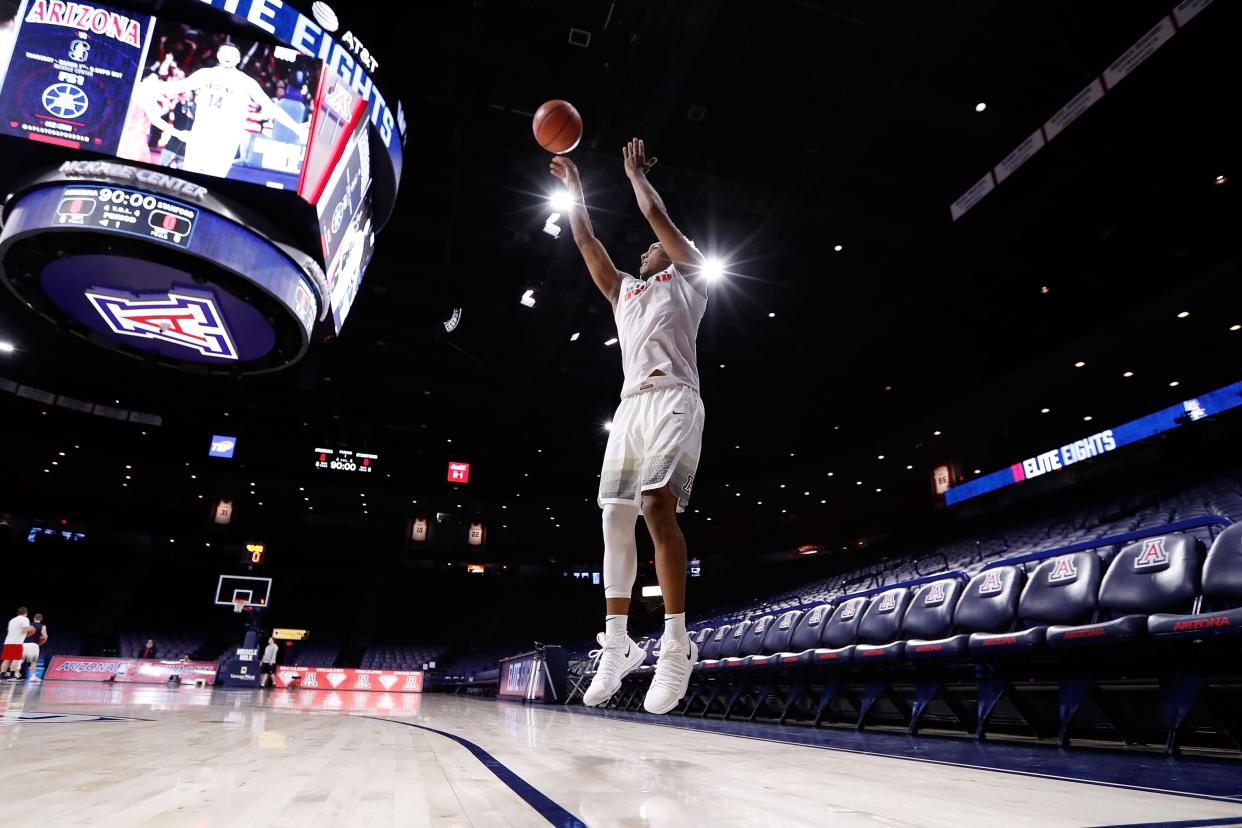Arizona's Allonzo Trier cleared to play despite positive test for banned substance

On the same day as university officials announced they were retaining head coach Sean Miller, Arizona learned it would be getting one of its star players back too.
The NCAA cleared guard Allonzo Trier to play Thursday night against Stanford after he won his appeal seeking to invalidate a failed drug test.
Attorney Steve Thompson argued that traces of a banned substance found in Trier’s system in late January were actually remnants left over from when he first tested positive in 2016. Thompson told Yahoo Sports last Thursday that both Trier’s positive tests were for Ostarine, a chemical compound that mimics the muscle-building and fat-burning effects of anabolic steroids.
Trier avoided a season-long suspension last year by successfully arguing he had ingested Ostarine inadvertently before the 2016-17 season when his stepfather mixed it into a drink. He returned after 19 games last January because that was when tests showed the Ostarine he ingested had fully cleared his system.
“Allonzo has never been a drug-cheat, and the NCAA found in 2016 that he never took Ostarine intentionally,” Thompson told Yahoo Sports last week. “The experts tell us Ostarine can be stored in fatty tissues for a long time, and tests can be negative but then later be positive as the substance comes out. The medical evidence also shows that the reappearance of a trace amount in his system now creates absolutely zero competitive advantage.”
Anti-doping experts who spoke to Yahoo Sports earlier this week questioned whether it was plausible for a detectable amount of Ostarine to stay in Trier’s system for well over a year. Don Catlin, founder and former director of the UCLA Olympic Analytical Laboratory, said it added to his skepticism that Trier passed multiple random drug screenings in between the NCAA lifting his suspension 13 months ago and his most recent positive test in late January.
“If the original positive finding was indeed due to inadvertent use of Ostarine in a drink provided by Trier’s father, as opposed to purposeful use of an Ostarine supplement by Trier, then it would be highly unlikely that he would test positive a year later from the original inadvertent use,” Catlin told Yahoo Sports. “Certainly a number of negative results in between support the conclusion that the most recent positive was not connected to the original inadvertent use.
“While hydration, which can affect pH of a urine sample, could be a factor and can influence results, it would not seem a very plausible explanation for a positive drug test occurring a year after inadvertent use of Ostarine. The pH of the negative samples in between could be compared to that of the original and recent positive to evaluate that further.”
Trier only missed two games while waiting for his appeal to be heard, a road win at Oregon State and a road loss at Oregon. Thursday’s decision ensures he will be back in uniform against Stanford as the Wildcats try to clinch a Pac-12 title and build momentum for the postseason.
Trier, Arizona’s second-leading scorer behind freshman Deandre Ayton, averages 19.6 points per game and shoots 43 percent from behind the arc. Trier was a preseason All-American and is likely to earn all-Pac-12 honors for the second straight season.
– – – – – – –
Jeff Eisenberg is a college basketball writer for Yahoo Sports. Have a tip? Email him at daggerblog@yahoo.com or follow him on Twitter!



